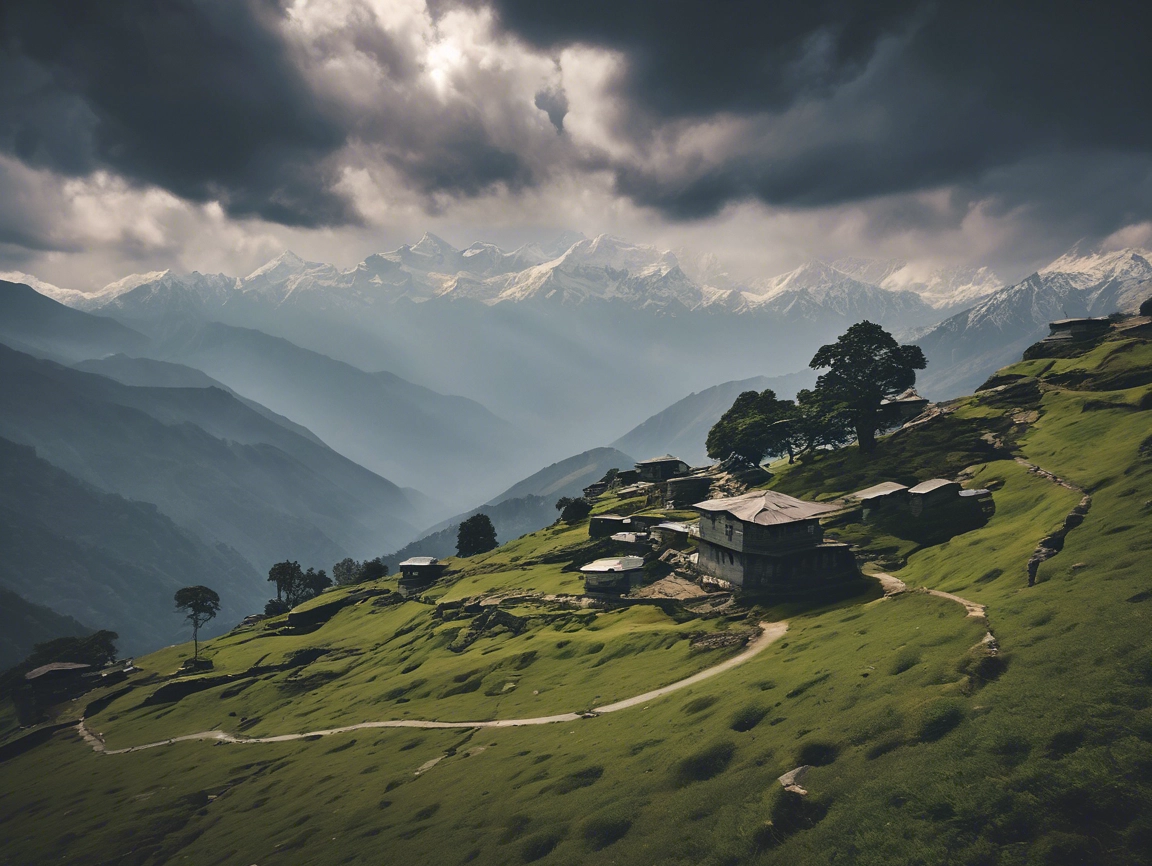Chopta-Tungnath-Chandrashila: A Walk in the Clouds
Nestled in Uttarakhand’s Garhwal Himalayas, the Chopta-Tungnath-Chandrashila trek is a breathtaking journey through alpine meadows, ancient forests, and sacred heights. Starting from Chopta—often called the “Mini Switzerland of India”—the trail winds gently through rhododendron and deodar forests, offering glimpses of snow-capped peaks like Nanda Devi, Trishul, and Chaukhamba.
The ascent to Tungnath (3,680m), the highest Shiva temple in the world, is a spiritual and visual delight. The stone-paved path, lined with wildflowers in spring, leads to a serene shrine surrounded by panoramic Himalayan vistas.
From Tungnath, a steep but rewarding 1km climb takes you to Chandrashila Peak (4,000m), where the 360-degree view at sunrise is nothing short of magical. The golden rays illuminating the Greater Himalayas, with the Kedarnath and Bandarpunch ranges in the distance, make every step worth the effort.
Whether you seek adventure, spirituality, or nature’s untouched beauty, this moderate 5km trek is a Himalayan gem—best visited between April-November, with winter adding a snowy wonderland charm. ❄️🏔️
Overview
Travel is the movement of people between relatively distant geographical locations, and can involve travel by foot, bicycle, automobile, train, boat, bus, airplane, or other means, with or without luggage, and can be one way or round trip. Travel can also include relatively short stays between successive movements.
The origin of the word “travel” is most likely lost to history. The term “travel” may originate from the Old French word travail, which means ‘work’. According to the Merriam Webster dictionary, the first known use of the word travel was in the 14th century.
It also states that the word comes from Middle English travailen, travelen (which means to torment, labor, strive, journey) and earlier from Old French travailler (which means to work strenuously, toil). In English we still occasionally use the words “travail”, which means struggle. According to Simon Winchester in his book The Best Travelers’ Tales (2004), the words “travel” and “travail” both share an even more ancient root: a Roman instrument of torture called the tripalium (in Latin it means “three stakes”, as in to impale).




